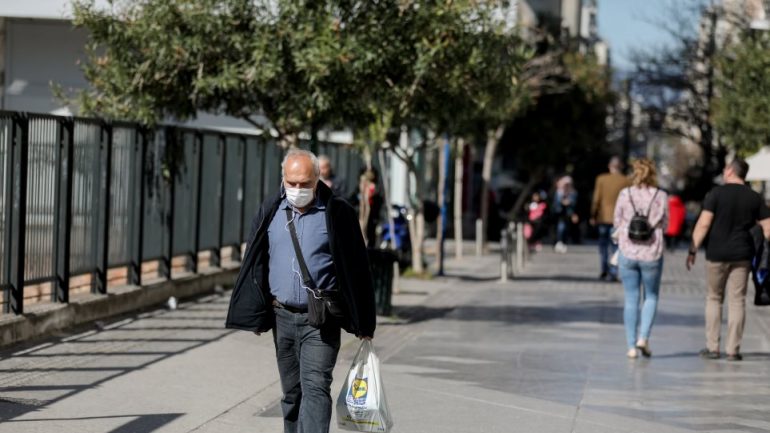Two new British scientific studies - one led by a Greek clinical virologist of the diaspora - confirmed previous findings that the "British" B.1.1.7 coronavirus mutation is at least 35% more contagious, but no study has found that this variant causes more serious and deadly disease Covid-19.
This highly contagious mutation, which was first detected in Kent, England last fall and has since spread to Europe and North America, including rapidly spreading in Greece, does not appear to be causing more severe symptoms and complications.
There have been previous indications that B.1.1.7 may lead to a worse outcome of Covid-19However, this is not confirmed by the two new surveys, which used different methods, according to the "Financial Times" and the Reuters agency.
One study compared the severity of the disease in 496 patients admitted between November and December to two London hospitals who had been infected with either the British mutation or others. No difference was found in the risk of serious illness or death between the various mutations. The study, which was published in the medical journal The Lancet Infectious Diseases, was led by Dr. Eleni Nastouli, a Greek-born clinical virologist at University College London (UCL), a graduate of the Medical School of the University of Athens. , Marios Margaritis and Stavroula Paraskevopoulou (both of UCL).
The other study, published in the public health journal The Lancet Public Health, looked at data collected from the British mobile app Zoe Covid Symptom Study (where users record their symptoms on their mobile phone) and correlated with Epidemiological surveillance data based on genomic analysis of coronavirus diagnostic tests (thus recording different variants of the virus in the population). No worsening of symptoms was observed over time after the prevalence of the B.1.1.7 mutation.
However, Dr Nicholas Davis of the London School of Hygiene and Tropical Medicine, head of one of the most pessimistic studies in the past, insisted that the new studies did not invalidate his own conclusions that infection with a "British" mutation was more likely to lead to hospitalization. As he said, "overall the new data show that B.1.1.7 is more likely to take you to the hospital than previous variants of the SARS-CoV-2 coronavirus. "But once someone is hospitalized, there is no significant difference in outcome or at least no statistically significant difference so far, given the small sample size limit."
